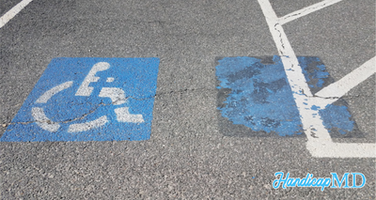
A Guide to Handicap Parking in Wisconsin
Introduction
Handicap parking is an essential aspect of ensuring accessibility for individuals with disabilities. In Wisconsin, there are specific regulations and guidelines in place to provide accessible parking options for those in need. This guide aims to shed light on the rules and requirements for handicap parking in Wisconsin, covering topics such as designated spaces, permits, enforcement, and frequently asked questions.
A Guide to Handicap Parking in Wisconsin
Disabled parking serves as a means of creating equal opportunities for individuals with disabilities, allowing them to access public places, facilities, and services without unnecessary barriers. The state of Wisconsin has established clear guidelines to ensure the availability and proper usage of designated parking spaces.
Designated Handicap Parking Spaces
In WI, designated parking spaces are clearly marked with the International Symbol of Access (ISA) and are reserved for individuals with disabilities who possess a valid parking permit. These spaces are strategically located near building entrances, ramps, or elevator access points to provide convenient accessibility.
It's crucial for non-disabled individuals to respect these designated spaces and refrain from parking there, as it can cause inconvenience and restrict access for those who genuinely require it.
Handicap Parking Permits
To park in designated handicap spaces, individuals in Wisconsin must possess a valid handicap parking permit or license plate. There are two types of permits available:
Permanent Parking Permit: This permit is issued to individuals with long-term disabilities that substantially impair their mobility. It is valid for four years and must be renewed upon expiration.
Temporary Parking Permit: Individuals with short-term disabilities that affect their mobility can apply for a temporary parking permit. This permit is valid for up to six months and requires a medical certification stating the duration of the disability.
To obtain a handicap parking permit in Wisconsin, you must complete an application, provide the necessary documentation, and submit it to the Wisconsin Department of Transportation (WisDOT).
Applying for a Handicap Parking Permit
To apply for a disabled parking pass in Wisconsin, follow these steps:
Download the Application Form: Visit the WisDOT website or your local DMV office to download the required application form.
Complete the Application: Fill out the application form with accurate and up-to-date information. Provide details about your disability and the need for a parking pass.
Medical Certification: Have your healthcare professional or licensed healthcare provider complete the medical certification section of the application. This certification verifies your disability and its impact on your mobility.
Submit the Application: Once you have completed the application and obtained the necessary medical certification, submit it to the WisDOT or your local DMV office along with any required fees.
Receive the Pass: If your application is approved, you will receive your parking pass or license plate by mail. Make sure to review the guidelines and regulations that accompany the pass to understand its proper usage.
Handicap Parking Enforcement
Enforcement of disabled parking regulations is crucial to ensure that these spaces are available to those who truly need them. Violations can result in fines and penalties. In Wisconsin, enforcement is primarily handled by law enforcement agencies and parking enforcement personnel.
Common violations include parking in designated spaces without a valid pass, misusing a parking pass, or fraudulently using someone else's pass. It is essential to abide by the regulations and respect the needs of individuals with disabilities.
Frequently Asked Questions (FAQs)
Can I park in a disabled parking space with a disabled parking pass from another state?
- Yes, WI recognizes valid parking passes issued by other states.
How do I report a disabled parking violation?
- To report a parking violation, contact your local law enforcement agency or parking enforcement department.
Can I use someone else's disabled parking pass?
- No, parking passes are non-transferable and can only be used by the individual to whom they are issued.
Can I lend my disabled parking pass to a family member or friend?
- No, parking passes should only be used by the person with the disability for whom they are issued.
What are the penalties for parking in a disabled space without a pass?
- The penalties for parking in a designated space without a valid pass can include fines, towing, and possible suspension of driving privileges.
Are disabled parking spaces required in private parking lots?
- While not required by law in private parking lots, it is recommended for businesses to provide accessible parking options to accommodate individuals with disabilities.
Conclusion
Ensuring accessible parking options is essential for individuals with disabilities. By following the guidelines and regulations outlined in this guide, we can create a more inclusive society that provides equal opportunities for everyone. Remember to respect and prioritize the needs of individuals with disabilities by refraining from parking in designated handicap spaces in Wisconsin unless you possess a valid permit. Let's work together to make Wisconsin more accessible and inclusive for all.
.png)






